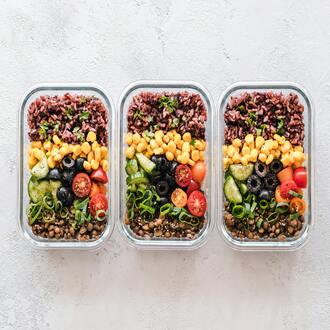Transcription Constipation and fiber intake in the ketogenic diet.
In the journey to a ketogenic diet, one of the challenges that can arise is constipation. Although this diet is known for its benefits in weight loss and improved metabolic health, changing eating habits and reducing carbohydrates can affect bowel regularity. In this session, we will unravel the relationship between constipation and fiber intake on the ketogenic diet, and provide practical strategies for maintaining optimal digestive health while pursuing ketosis.
Digestive changes
Transitioning to a ketogenic diet often triggers changes in the digestive system. Reduced carbohydrate intake can affect intestinal motility and microbiota composition, which can contribute to constipation. Understanding these adjustments is essential to effectively address the problem.
Fiber: an essential component of digestive health
Dietary fiber plays a crucial role in digestive health by promoting regularity and movement of food through the intestinal tract. However, in the ketogenic diet, where carbohydrates are kept low, it is common for fiber intake to decrease. This change can impact bowel function and contribute to constipation.
Despite carbohydrate restriction, it is possible to incorporate sources of fiber into the ketogenic diet. Foods such as avocados, nuts, chia seeds and broccoli are high-fiber, low net carb options. Not only can these foods help promote bowel regularity, but they also offer additional nutritional benefits.
Non-digestible fiber, also known as soluble and insoluble fiber, can be especially beneficial in the ketogenic diet. Although soluble fiber is found in lower amounts in this diet, its ability to hold water and form a gel in the intestine may help soften stool and promote regular bowel movements.
Hydration and Movement: Pillars of Digestive Relief
Staying well hydrated is essential to prevent constipation on the ketogenic diet. Fiber needs water to do its job properly, so making sure to drink enough fluids is critical. In addition, movement and physical activity can also stimulate bowel transit, so incorporating regular exercise can be beneficial.
Strategies to Combat Constipation on the Ketogenic Diet
There are several strategies that can be helpful in relieving constipation while following a ketogenic diet. In addition to increasing fiber intake from permitted sources, supplementation with psyllium, a type of soluble fiber that can provide relief, may be considered. It is also important to avoid excess dairy and saturated fats, as they may contribute to constipation in some people.
Each individual responds uniquely to the ketogenic diet and its effects on the digestive system. It is crucial to keep track of food intake, hydration and bowel movements to identify patterns and make adjustments as needed. Working with a healthcare professional, such as a dietitian, can provide personalized guidance to effectively address constipation.
consumption fiber




